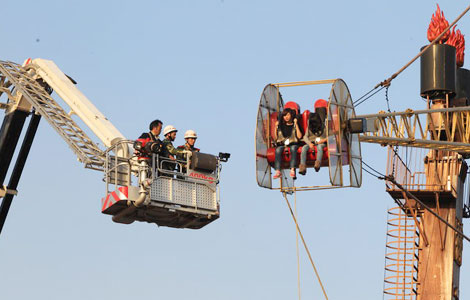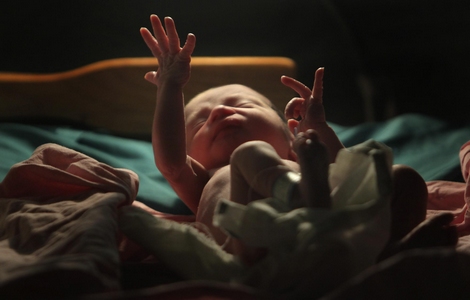|
|||||||||||
SHANGHAI - The current deadlock in the Greek economy is a symptom of a deeper eurozone crisis, and a common fiscal policy is essential for the stabilization of the European Union's economy, according to a senior Greek official.
The crisis is the result of the lack of fiscal policy coordination among eurozone members, Petros Efthymiou, spokesman of the parliamentary group of Greek ruling party PASOK, told China Daily in Shanghai.
"The situation in Greece is the symptom of the eurozone, not the fundamental cause of the crisis," Efthymiou said, adding that the bloc "should confront these deeper problems before giving answers to the Greek case".
|
 |
In the past few weeks, European leaders have been trying to work out a package before the upcoming G20 Summit to solve the interrelated problems of Greek debt, weakened banks and a bailout fund in need of reinforcement.
They have basically reached an overall agreement on recapitalizing Europe's shaky banks, which they decided required an extra 100 billion euros ($140 billion), but a German-French disagreement revolved around how to expand the pot, and whether to turn the fund into a special-purpose bank backed by the European Central Bank.
The root of the crisis, according to Efthymiou, is that many eurozone members ignored the government deficit ceiling of 3 percent of a nation's GDP, and 60 percent of GDP in terms of sovereign debt, which were set out in the Maastricht Treaty in 1992.
"The economy was good when we formed the eurozone, but we don't have, until now, a coordinated or even common economic and fiscal policy. That explains why it is hard to have common answers in the face of common challenges, when you have 17 different national agendas," Efthymiou said.
Greece has undertaken bold and concrete reforms since the recession worsened in 2010. Official figures showed it reduced the government deficit by 5.1 percentage points of GDP in 2010, the largest annual fiscal consolidation ever by a eurozone country.
With extensive programs of privatization, Greece's primary balance keeps improving. Efthymiou said a primary deficit of 2.4 billion euros is expected at the end of 2011, before turning to a primary surplus in 2012.
Regarding the EU summit, Efthymiou said Greece is keen to achieve a stable mechanism for the recapitalization of banks, and expects the outcome of the crisis to be the deepening of the eurozone.
"I hope we work together to make a strong eurozone, through reforming fiscal policies backed by new mechanisms and treaties," Efthymiou said.
"That is why we think it is necessary to be more decisive when we speak of the 'union', with common currency and common fiscal policies."
He also mentioned China's role in resolving the economic deadlock, saying that major powers like China can contribute to the overhaul of the global economic mechanism.
Despite the ongoing efforts, the crisis will "continue to linger" no matter what deals are championed during the EU Summit, said Dan Steinbock, research director of International Business at the India, China and America Institute, an independent think tank in the United States.
"Even if decisions are made, not all problems - fiscal and monetary issues, the central bank's toxic assets, not so speak of competitiveness erosion - can be resolved," he wrote in an e-mail to China Daily.
Eberhard Sandschneider, a China expert at the German Council on Foreign Affairs, said China should understand that EU as a whole is a complicated system that it does not necessarily speak with one voice. According to Steinbock, China and Greece can work together in areas that are mutually beneficial, such as Chinese investment in the Port of Piraeus.
However, "the most attractive trade and investment prospects are in fiscally conservative Europe, not in debt-ridden peripheral Europe," Steinbock said.
He also noted the current European challenges are of great magnitude and require very costly, multi-year solutions. "Ultimately, the eurozone must be able to stand on its own two feet, or it will fail."
Qin Zhongwei in Berlin contributed to this story.
Hot Topics
Libya conflict, Gaddafi, Oil spill, Palace Museum scandal, Inflation, Japan's new PM, Trapped miners, Mooncake tax, Weekly photos, Hurricane Irene
Editor's Picks

|

|

|

|

|

|







